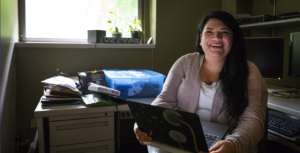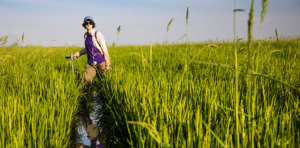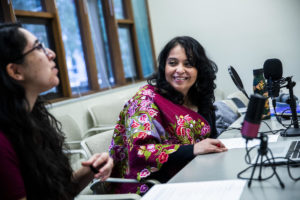Professional Opportunity in Asia
Award Information
This program provides stipends, language training, and individualized placement for 15-18 young Americans each year to spend twelve months in Asia in a professional, not academic, placement.
Established in 1974, the Luce Scholars Program is a nationally competitive fellowship that offers early-career leaders immersive, professional experiences in Asia. The program aims to forge stronger relationships across geographic borders by creating opportunities for young Americans to deepen their ties and understanding of the countries, cultures, and people of Asia.
Open to U.S. citizens and permanent residents, the Luce Scholars Program provides stipends, language training, and individualized professional placement in Asia for 18 Luce Scholars each year. The program welcomes applications from college seniors, graduate students, and young professionals in a variety of fields, with a range of backgrounds and experiences, who have had limited exposure to Asia. Placements can be made in the following countries or regions in East and Southeast Asia: Cambodia, China, Hong Kong, India, Indonesia, Japan, Laos, Malaysia, Mongolia, Myanmar, Nepal, Philippines, Singapore, South Korea, Sri Lanka, Taiwan, Thailand, Timor Leste, and Vietnam.
In spite of its name, the Luce Scholars Program is experiential rather than academic in nature. Some scholars have been attached to Asian universities in teaching or research capacities, but none of the participants are formally enrolled as a student in a college or university and no academic credit is extended.
Professional placements are arranged for each scholar on the basis of his or her individual interest, background, qualifications, and experience. Each scholar spends July and August studying the language of the placement country, and the work assignments run for approximately ten months from September until July of the following year. The placements are intended primarily as learning opportunities for the scholars. Certainly it is hoped that a scholar will be able to make a professional contribution to the host organization, but equally important is a willingness to learn some of the many things that Asia has to teach.
National Application Deadline: September 15, 2025 (2 p.m. Pacific)
Eligibility
Graduating seniors, recent alumni, and current graduate or professional students who meet the below criteria are welcome to apply:
- U.S. citizen or permanent resident
- Under the age of 32, or no more than 3 years out from receiving a bachelor’s degree
- Candidates who have spent 18 weeks or more (since beginning college) in one of the countries where scholars are placed are eligible to apply, to be placed in a country where they do not have significant experience.
- Candidates who have spent 18 weeks or more (since beginning college) in more than one of the countries where scholars are placed are not eligible to apply.
Application Process
Applicants to the Luce Scholars Program were previously required to apply through an eligible nominating institution. Candidates may now apply directly to the program via the Luce Scholars Program website.
Late applications—including transcripts and letters of recommendation—will NOT be accepted. You do not have to complete your application in one sitting; you can save your work at any point as frequently as necessary. Once you submit your application, you will no longer have access to it, so be sure to print a copy for your records prior to submitting.
OPEN A LUCE SCHOLARS PROGRAM APPLICATION
Application Materials
- Written Application – Candidates provide biographical and educational information.
- Three Short Answer Questions – 250 words maximum for each question.
- Personal Statement – 1,000 words; allows applicants to share their unique perspectives and aspirations.
- 1–2-Minute Video – Candidates record and upload a 1–2-minute video based on the provided prompt. The video gives program administrators a chance to get to know the candidate beyond the page.
- Academic Transcripts – Candidates upload transcripts of all college and graduate work.
- Two Letters of Recommendation (LOR) – Candidates complete a form for each recommender. A minimum of two recommendations must be submitted, and a maximum of four recommendations will be accepted. Once a form is submitted, an email is triggered to the recommender. Letters must be uploaded separately by the recommenders. LORs can be from academic, professional, or collegial references. They should come from people who know the candidate well and can speak to their skills, abilities, and potential. LORs should be signed on official letterhead whenever possible.
UW Luce Scholars Program Advisors
Graduate and professional students and alumni from UW Seattle can receive advising support from Michelle Sutton in the Graduate School Office of Fellowships & Awards: gradappt@uw.edu.
Undergraduate students and bachelor’s graduates from UW Seattle can receiving advising support from Robin Chang in the Office of Merit Scholarships, Fellowships & Awards: scholarq@uw.edu.
UW Bothell students and alumni of all levels may contact Natalia Dyba in the Office of Merit Scholarships, Fellowships & Awards: nataliak@uw.edu.
UW Tacoma students and alumni of all levels may contact the Office of Global Affairs: uwtoga@uw.edu.



